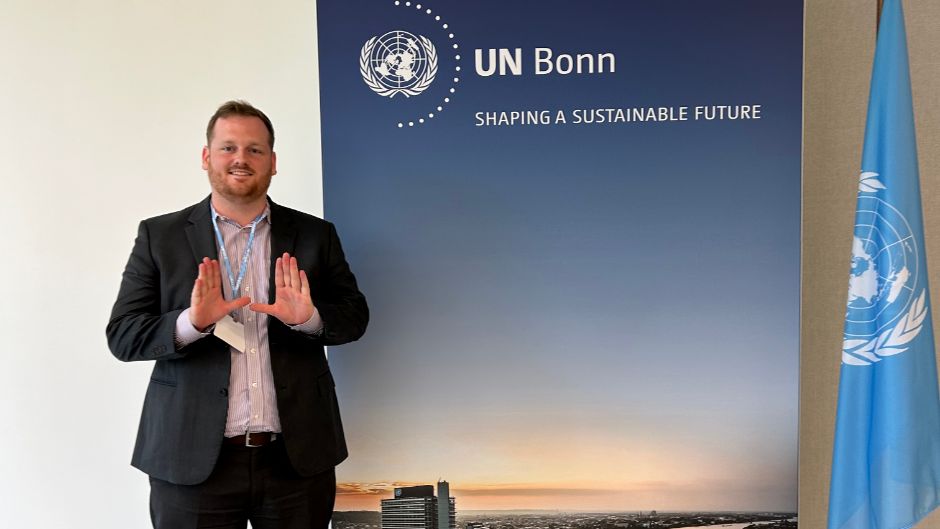Today in Bonn, 3L Sam Stephens is finishing up the third day of his attendance at the Climate Technology Centre and Network 22nd Advisory Board meeting, where the body is reporting on its work in 2023 and discussing ways to improve upon this work in coming years.
The CTCN is the implementation body of the United Nations' Technology Mechanism, which is focused on implementing and developing projects focused on bringing climate technologies to developing countries and building capacity in these countries to implement climate technology. At CTCN AB 22, leaders from across the globe look to implement a variety of climate technology solutions to equip developing countries with the tools they need to fight the effects of climate change.
Last year, Professor Jessica Owley, director of Miami Law's Environmental Law Program, took 14 law students to COP 27 in Sharm El Sheikh, Egypt, where students covered a wide variety of global climate issues.
There, Stephens covered negotiations on the Technology Mechanism, where he developed relationships with several delegates from various countries. Following COP 27, he worked with Owley to become an official observer for the Technology Mechanism's follow-up meetings in Korea and now Germany.
Owley is bringing another group of students to COP 28 in Dubai, United Arab Emirates, later this year.
Over the past year, Stephens has familiarized himself with the work of the Technology Mechanism and wrote a research paper on building upon and furthering the body's progress. The article is slated to be published in the Arizona Journal of Environmental Law and Policy this Fall.
"Implementing innovative and effective technological solutions in developing countries to mitigate and adapt to the effects of climate change is critical," said Stephens. "The Technology Mechanism is working with developing countries to identify suitable climate technology projects and helping these countries fund and implement such projects, and it is an incredible opportunity to hear about the work firsthand.
"At CTCN AB 22, there has been an attitude that progress is being made. Presentations from several country representatives that received CTCN assistance drives home a message that the efforts of the body are working well, but that more is needed," he said.
Following the Korea meetings, Stephens plans to incorporate the outcomes into his research.
"Covering these negotiations and meetings has been an incredible opportunity that I never imagined would be possible in law school." Stephens said. "I am immensely thankful to Professor Owley, LAFAC, and the University of Miami School of Law for giving me this unique opportunity to be engaged and involved in global climate technology efforts."
Read about Environmental Law at Miami Law.

